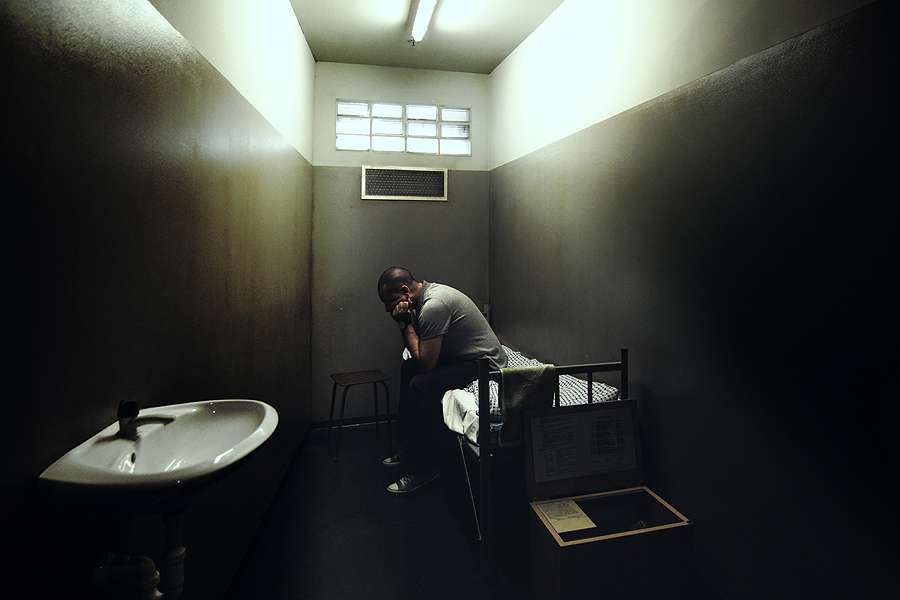Lincoln, Neb., Oct 5, 2016 / 03:35 pm (CNA/EWTN News).- Catholic leaders in Nebraska spoke out in favor of a vote to maintain a ban on the death penalty, calling it unnecessary and “unjustified.”
“The Catholic Church and Nebraska bishops oppose the death penalty because it is not necessary to protect society,” Tom Venzor, executive director of the Nebraska Catholic Conference, said at a Sept. 29 press conference. “We urge Catholics and all people of good will to vote to retain the repeal of the death penalty on Referendum 426.”
This November, voters can decide whether to approve or reject the Nebraska Death Penalty Repeal Veto Referendum, Referendum 426. The referendum would repeal the Nebraska legislature’s May 2015 vote to ban the death penalty. Gov. Pete Ricketts vetoed the bill, but the legislature overrode it.
The Catholic conference is hosting speaking events about the referendum at each cathedral parish and other parishes and venues. Venzor said Nebraska’s bishops and the Catholic conference will engage in “significant efforts” to ensure Catholics understand Catholic teaching on the death penalty and are encouraged to vote to retain the legislature’s death penalty repeal.
Archbishop George Lucas of Omaha spoke in favor of retaining the ban in an Oct. 3 video. “In our particular circumstance, the death penalty is unnecessary and therefore unjustified. This principled Catholic response is shaped by our commitment to the life and dignity of every human person and the common good,” he said. He cited Catholic teaching that the state may impose the death penalty if it is “the only available means to protect society.” The option should not be exercised when “other non-lethal means that are more respectful of human life are available.”
Father Douglas Dietrich also backed a vote to retain the ban. He is pastor of St. Mary’s Catholic Church in Lincoln, not far from the capitol building, Human lives are “unrepeatable, intrinsically valuable gifts that we must not deprive others of,” he told the Sept. 29 press conference. “Along with my brother priests we are taking a principled pro-life stance in proclaiming we do not need the death penalty in Nebraska,” he said adding “what human life God creates, we must not destroy.”
About 49 percent of Americans support the death penalty for convicted murderers, down from 80 percent in 1995. In 1995 only about 16 percent of Americans opposed the death penalty. That figure has risen to 42 percent. Since 1936, opposition to the death penalty peaked in the mid-1960s when 47 percent of Americans opposed it and only 42 percent supported it, according to the Pew Research Center. Death penalty opposition is the highest since 1972. About 72 percent of Republicans support the death penalty, compared to 44 percent of unaffiliated voters and 34 percent of Democrats. 43 percent of Catholics support the death penalty, while 46 percent oppose it. White Catholics are somewhat more likely to support the death penalty.
Fr. Dietrich said alternatives to the death penalty offer the convict the chance at rehabilitation and conversion. He cited St. John Paul II’s words during his 1999 visit to the United States: “A sign of hope is the Increasing recognition that the dignity of human life must never be taken away, even in the case of someone who has done great evil.”
Sister Jean O’Rourke, a Sister of Mercy from Omaha, Neb., said that women religious have advocated for the abolition of the death penalty for decades. She said the death penalty is an “ineffective and unfair” policy, given the risk of executing innocent people, the costs of appeal, and the personal effects of the lengthy appeals process on victims’ families. “It promises closure, but all too often brings prolonged agony,” Sister O’Rourke said.
“The Death penalty is not merciful, because it views a person as not deserving God’s gift of life,” she said. “When the state kills, in our name, we have blood on our hands.”
The Nebraska Catholic Conference has a webpage about the death penalty measure at http://www.necatholic.org/deathpenalty

